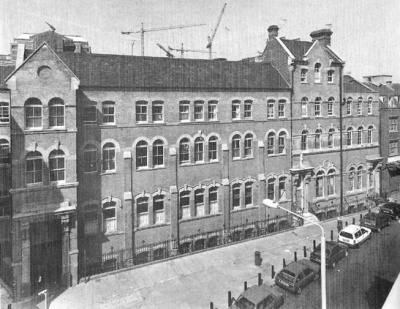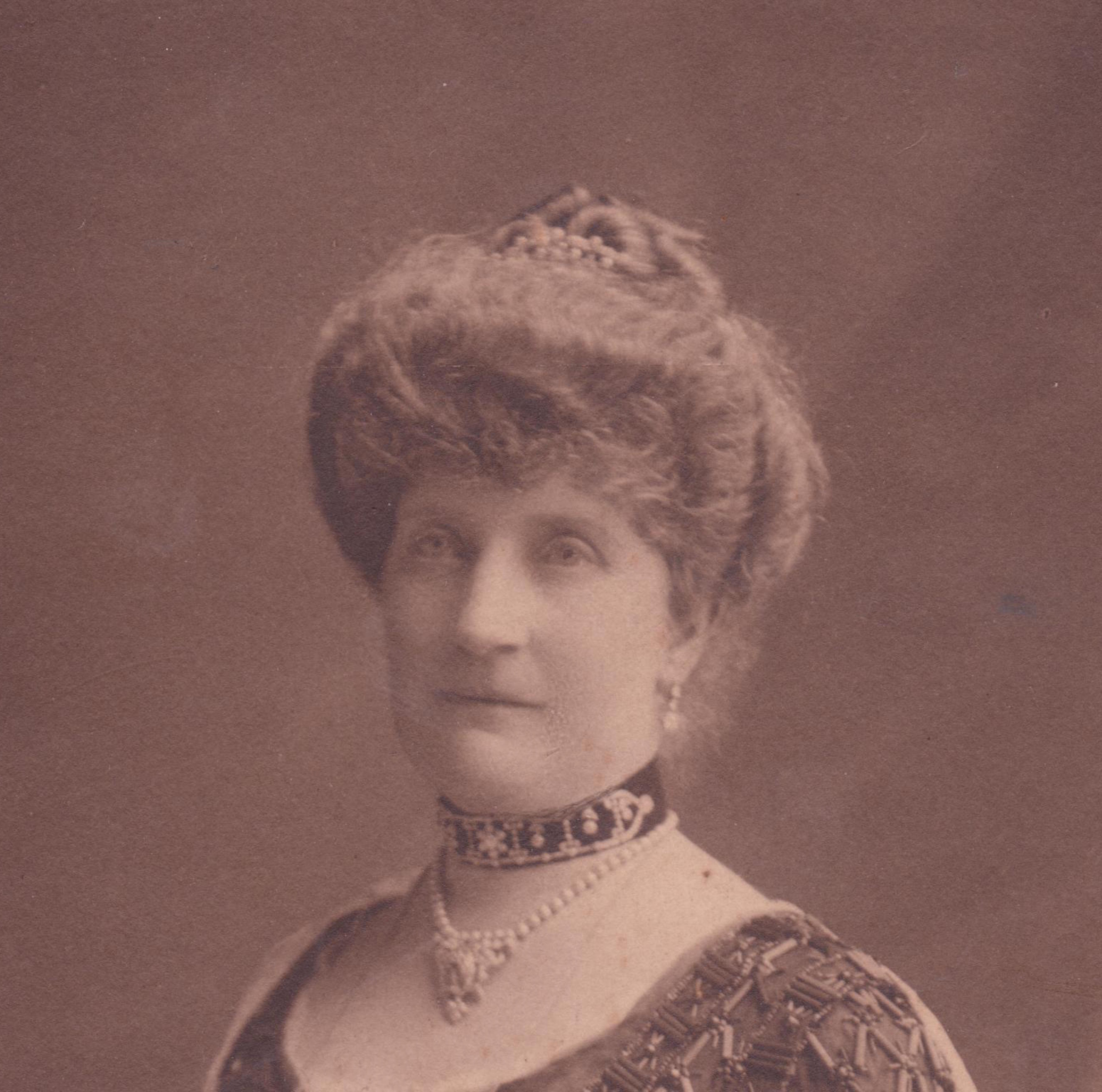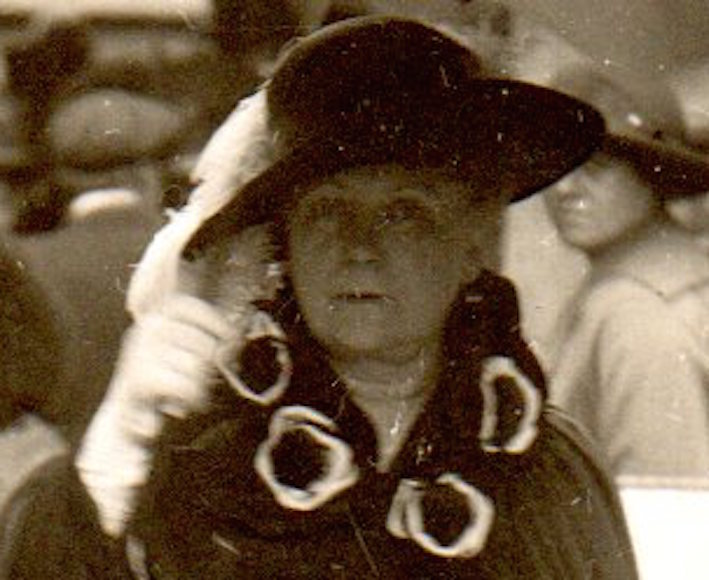ALDERMAN ERNEST A. O’BRYEN.
We regret to record the death of Alderman Ernest A. O’Bryen, Mayor of Hampstead, which took place on Saturday night, at the age of fifty-three years, following on an operation from which he at first seemed to be progressing favourably. Educated at Stonyhurst and Cooper’s Hill, he spent some ten years in the Indian Forest Service in Upper Burmah, shortly after its annexation. He retired from the service in 1897 and married in the following year, Gertrude, daughter of the late Alfred Pursell. In 1913 he was elected Mayor of Hampstead, first Catholic to hold that position, and held it till his death. In 1916 he was President of the Stonyhurst Association and the same year was elected a Vice-President of the London Circle of the Catenian Association. During the war he took a leading part in making arrangements for the feeding and accommodation of Belgian refugees, and he also organised and equipped hospitals for the British Red Cross and St. John Ambulance. In 1915, Alderman O’Bryen was instrumental in raising the 183rd Howitzer Brigade and the 138th and 139th Heavy Batteries of Royal Garrison Artillery.
The funeral took place on Wednesday. The Requiem Mass was celebrated at St. Dominic’s Priory, Haverstock Hill, by Father Bodkin, S. J. Among those present were Mrs. O’Bryen and her five children, Mr. and Mrs. A. J. Winstanley, Captain and Mrs. Parker, Mr. Alfred Pursell, Mrs. Edwardes, Mr. and Mrs. E. J. Bellord, Mr. Frank Pursell, Mr. Alfred O’Bryen, Mrs. Rex O’Bryen, Mrs. Basil O’Bryen, the Deputy Mayor, the Town Clerk, Aldermen and Councillors of the Borough of Hampstead, the Vice-Chairman of the London County Council (Mr. A. T. Taylor, L.C.C.), Alderman Sir William Dunn, Bart., Alderman J. W. Gilbert, L.C.C., Mr. W. Reynolds, L.C.C., Mr. John O’Connor, K.C., Canon Burton, Father Robert Bracey, 0.P., Rev. J. Keating, S.J., Father John Leather, 0.P., Mr. J. G. Bellord, Dr. Ernest Ware, Mr. Synnott, Mr. Lescher, and many others. Father Bodkin also gave the Absolutions, and officiated at the interment at Kensal Green, assisted by Father John Leather. Several communities of nuns were also represented in the church. The children from Bartram’s Orphanage lined the road near the church and the entrance to the avenue at the cemetery.
“The Catholic body in London has suffered a severe loss by the death of Alderman Ernest O’Bryen,” writes one who knew him. “The number of Catholic laymen who take a prominent share in London public life is unfortunately not very large, and the untimely death of one who had achieved such a notable success as to be elected six times in succession Mayor of the borough of Hampstead, in which he lived, must fill with deepest regret all those, interested in Catholic social effort in the Metropolis. Those who had the privilege of knowing Ernest O’Bryen intimately were not surprised that he secured the confidence and the esteem of his fellow workers, both Catholic and non-Catholic. An able administrator, with a sound judgment, a strong resolution, a persuasive manner, and a power of appropriate silence—the last a valuable gift in public life, his two outstanding qualities were perhaps his loyalty and his generosity of service. He was loyal, most loyal, to his religious beliefs and practices, loyal to his country, loyal to his friends, and loyal to those co-operating with him. His fellow Catholics know of his loyalty to his religion : Hampstead marked its appreciation of his loyalty to his country at the beginning of the war by re-electing him as Mayor five times to see the war through ; many like the writer have experienced his loyalty to his friends, which showed itself in times of anxiety and difficulty, not in word service but in practical form ; whilst of his loyalty to those co-operating with him his record in public life and in many Catholic organizations with which he was connected will bear willing witness.”
His great generosity of service has undoubtedly contributed to his breakdown in health. Few London Mayors have exceeded his standard of effort as first citizen of a London borough throughout the difficult period of the national emergency. His achievements in connection with the Prince of Wales Fund, Red Cross and St. John Ambulance work, Belgian Refugees, recruiting for Kitchener’s Army and the Derby Scheme, the Hampstead Tribunal for exemptions from military service of which he was Chairman, the War Loan Campaign, the Food Economy Campaign and the provision of allotments—all are in the records of Hampstead public life, and it is to be deeply regretted that he has not lived to receive the official recognition of these services, which he so richly merited. The Catholic body in London, certainly, may be proud of the excellent record of public service for the common good which a Catholic layman has achieved.
Of his Catholic work it is unnecessary to write at length. The Catholic Federation, in its early days, the Catenian Society, the Stonyhurst Association, Catholic elementary schools, have by his death lost a good friend. If he had been spared, and, as seemed likely, his scope of public service had been increased, all these associations would have benefited materially from his support. His last visit to the writer was with a view to securing material assistance for a Catholic charitable institution, in the development of which he took great interest. His untimely death certainly creates a void in London Catholic life, which it will be very difficult to fill.
The above text was found on p.28, 3rd May 1919 in “The Tablet: The International Catholic News Weekly.” Reproduced with kind permission of the Publisher. The Tablet can be found at http://www.thetablet.co.uk .





